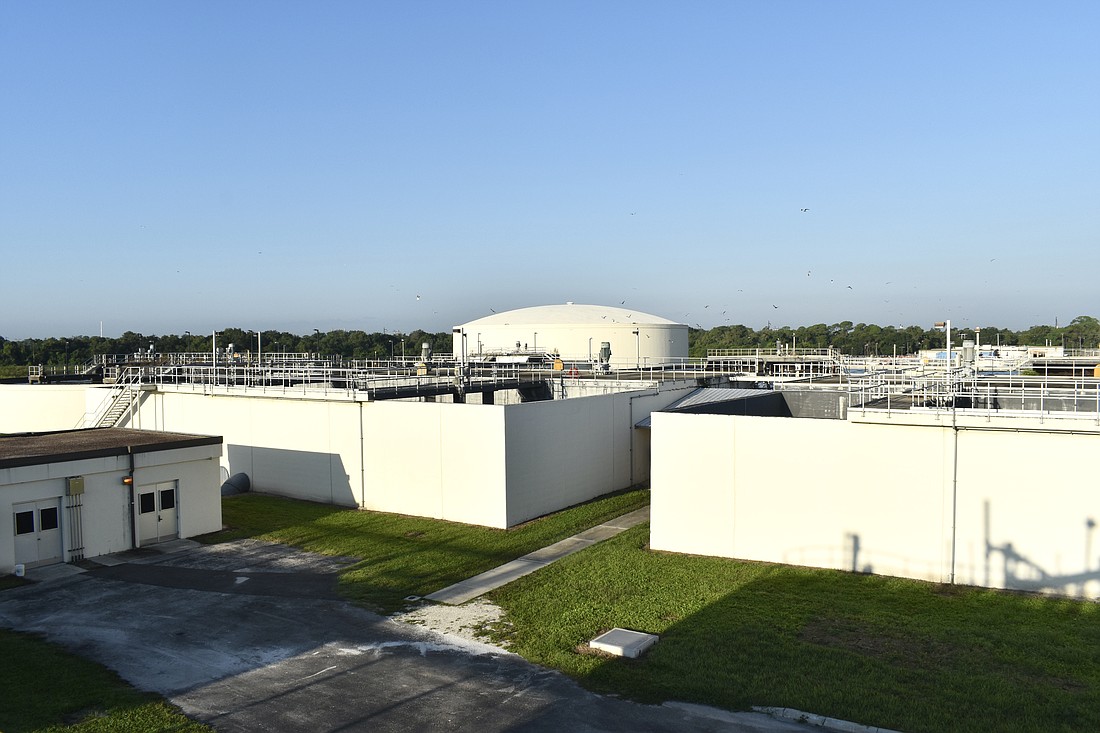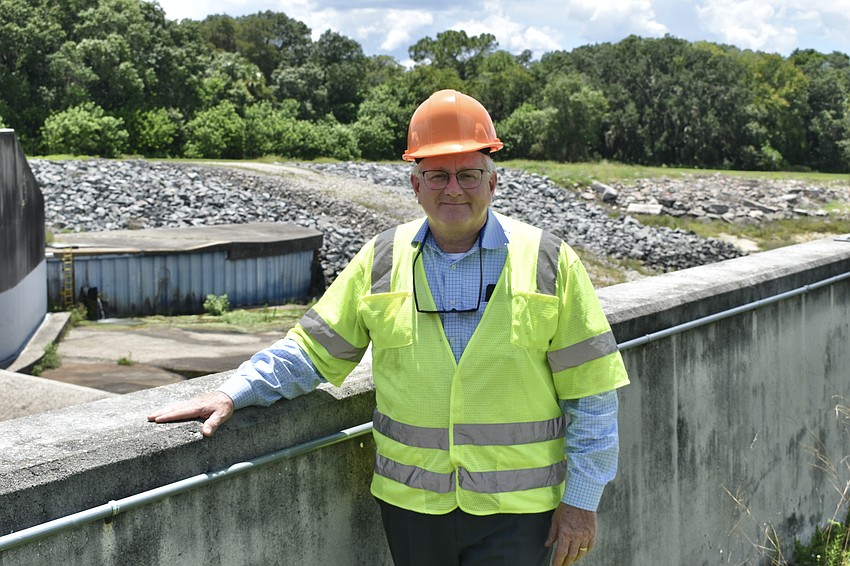- May 23, 2025
-
-
Loading

Loading

As new housing developments continue to spring up, Manatee County is researching more ways to provide reclaimed water for irrigation purposes.
Kevin Morris, the county’s deputy director of utilities, said that research includes the possibility of connecting reclaimed water lines with the city of Bradenton.
New pipes could allow the city, which often has a reserve, to provide reclaimed water to the county.
While Morris said the county has not encountered any issues yet with storing enough reclaimed water, he said a possible shortfall is projected by 2040.
The county already holds a significant amount of reclaimed water in lakes, ponds and deep injection wells.
However, the project would allow additional developments to tap into the county’s transmission mains. Morris said as new developments emerge, smaller pipes are constantly being added to feed them irrigation water.
Morris said in the past that conversations have been held between former Deputy Director of Utilities Jeffrey Goodwin, who left the county in October, and the city of Bradenton. He said limited conversations also took place over the holidays.
Morris said the need for reclaimed water in the future, obviously, will be during its greatest periods of drought.
During the wet season, there can be an overabundance of reclaimed water, he said.
“The challenge is always what do you do to get rid of your extra water in the rainy season when people’s grass is nourished by precipitation,” he said.

According to Morris, the county produces about 26 million gallons per day of reclaimed water but uses only about 17 million gallons a day. Therefore, it must pipe almost 9 million gallons per day, on average, into storage.
The county’s holding systems are capable of retaining 1.3 billion gallons of reclaimed water.
That storage is useful during the dry season, and even that might be enough in the future and therefore the possibility of a partnership with the city.
Morris said many different ways to connect with the city exist and those still need to be explored.
During a Dec. 17 county meeting, Morris showed two possible connections with the city, including one that was located at the Braden River and another, which was located in the downtown Bradenton area.
While county staff members declined to discuss further details of any plans, the price tag for either alternative could be about $20 million, Morris said.
According to Jim McLellan, director of the Public Works & Utilities Department for the city of Bradenton, most of the excess water currently supplied by the city is sent to Braden River Utilities.
McLellan said there is a contractual agreement with Braden River Utilities to supply the company with up to 5 million gallons per day.
Meanwhile, the flow of reclaimed water from the plant is about 6 to 6.5 million gallons on an average day.
He noted the city’s reclaimed water undergoes advanced wastewater treatment, which means its nutrients are removed.
Once the water has left the city, Braden River Utilities, an entity separate from Manatee County, chooses how to utilize the water, distributing it to areas of Lakewood Ranch that are not contributories of Ward Lake, which supplies drinking water to the city of Bradenton.
The rest of the reclaimed water is mainly distributed to the community of Glen Creek, the Pirate City stadium complex and the River Run golf course.
McLellan said the excess reclaimed water results from variations in how much water is available, as well as times a company or municipality cannot accept the flow.
There are also some restrictions on the system that connects the city to Braden River Utilities, which McLellan said are currently being resolved.
The pipeline and pump station delivering flow to Lakewood Ranch was recently expanded with additional piping and additional capacity of pumps, he said.
However, he said the company is still in the process of adding a booster system that will keep the pressure at the necessary levels.
Morris said if the county can manage a shorter route or a route through a less urbanized or congested area, it could “vastly” reduce costs. This would be the case, he said, if the city is able to connect with Braden River Utilities, bringing the transmission line closer to the existing system.
McLellan said at this point, conversations on a connection with Manatee County are preliminary, and he does not know whether or how the water flow would develop.
Morris said this project would not be the first time the county and city have worked alongside one another.
He said the county and city potable water systems are already interconnected at about 10 locations.
This, he said, is because of boundaries created by geography and city limits that may lack uniformity, leaving one governing body sometimes in a better position to supply water to a property that was within the other’s network.
If the infrastructure of one party is better equipped to serve the other’s area, arrangements will be made, Morris said.
He said there is a formal process by which the city utilities director can request service from the county in writing, and vice versa.
One example of such a situation, he said, is the county’s current plans to accept Jessie P. Miller Elementary School as a customer. He said the county operates a water main, which can provide better pressure, while plans will also allow the city to abandon an old line that it would otherwise have to replace, but which extends for about half-a-mile with no benefit to areas outside the school.
The switch would simply be the fairly inexpensive process of swapping out the water meters, he said.
Morris said the county will not be alone in covering the cost of the project if it develops in the future.
The Southwest Florida Water Management District highly encourages the use of reclaimed water, Morris said, as it helps prevent “precious and limited” potable water from being used for irrigation and has a policy of providing constructed grants for these types of projects.
He said because discussions are at a preliminary stage, neither the county commissioners nor Bradenton’s City Council have made decisions regarding funding.
However, the effort has seen support from District 1 Commissioner James Satcher.
After having pushed for more cooperation between the county and city, Satcher said during a Dec. 17 meeting that he was pleased to see progress was being made in the area.